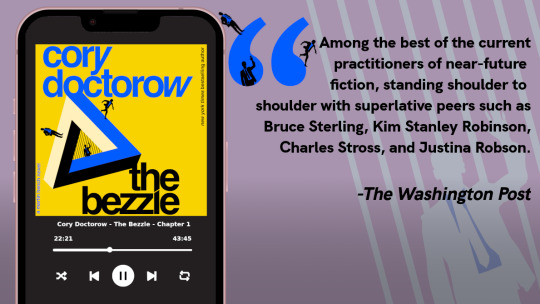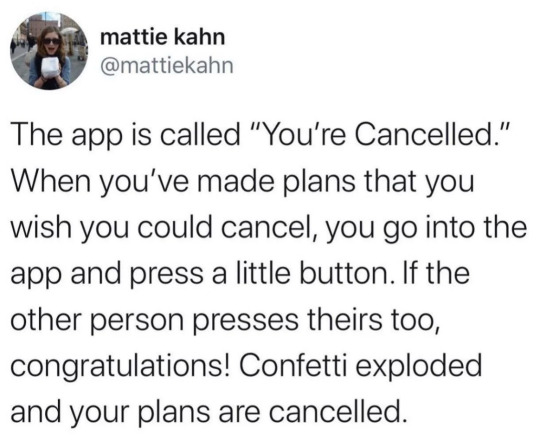#APPS
Explore tagged Tumblr posts
Text

#memes#meme#apps#technology#internet#ryan gosling#2000s#2020s#millennial memes#twitter#millennials#aol#newgrounds#twitter posts#miniclip#myspace#livejournal#kane52630#posts
32K notes
·
View notes
Text

6K notes
·
View notes
Text
Me anytime an app changes its layout

9K notes
·
View notes
Text
~Agere apps~
~Ages 0-5~
🍼-Hello kitty travel
🍼-A day with Caillou
🍼-Toca Boca jr
🍼-StarFall
🍼-Khan academy kids
🍼-Avatar world
🍼-Miffys world
🍼-Care bear music band
🍼-Strawberry shortcake bakery
🍼-Endless numbers/alphabet
🍼-My very hungry caterpillar
🍼-Pbs kids games
🍼-Lego duplo connected train
🍼-Pet salon
~Ages 6-8~
🍭- Hello kitty lunchbox
🍭-Epic
🍭-Spotify kids
🍭-Pbs kids games
🍭-Toca Boca world
🍭-Toca Boca hair salon 4
🍭-Lingukids
🍭-Pet salon
🍭-StarFall
🍭-Miga town
🍭-Fluvsies
🍭-My little pony harmony quest
🍭-Khan academy kids
~Ages 9-12~
🍨-Adventure academy
🍨-Kidly
🍨-Toca Boca world
🍨-Go noodle
🍨-Avatar world
🍨-Myschool
🍨-Prodigy
🍨-My little pony rainbow runners
🍨-My little pony harmony quest
🍨-Powerpuff yourself
🍨-Youtube kids (be safe!)
🍨-Donut maker cooking games
🍨-Toca Boca hair salon 4
🍨-Sushi maker kids cooking games

#age regression#age regressor#agere#agere blog#agere caregiver#agere community#pet regressor#sfw agere#sfw caregiver#pet regression#sfw#sfw interaction only#apps
636 notes
·
View notes
Text
How lock-in hurts design

Berliners: Otherland has added a second date (Jan 28) for my book-talk after the first one sold out - book now!

If you've ever read about design, you've probably encountered the idea of "paving the desire path." A "desire path" is an erosion path created by people departing from the official walkway and taking their own route. The story goes that smart campus planners don't fight the desire paths laid down by students; they pave them, formalizing the route that their constituents have voted for with their feet.
Desire paths aren't always great (Wikipedia notes that "desire paths sometimes cut through sensitive habitats and exclusion zones, threatening wildlife and park security"), but in the context of design, a desire path is a way that users communicate with designers, creating a feedback loop between those two groups. The designers make a product, the users use it in ways that surprise the designer, and the designer integrates all that into a new revision of the product.
This method is widely heralded as a means of "co-innovating" between users and companies. Designers who practice the method are lauded for their humility, their willingness to learn from their users. Tech history is strewn with examples of successful paved desire-paths.
Take John Deere. While today the company is notorious for its war on its customers (via its opposition to right to repair), Deere was once a leader in co-innovation, dispatching roving field engineers to visit farms and learn how farmers had modified their tractors. The best of these modifications would then be worked into the next round of tractor designs, in a virtuous cycle:
https://securityledger.com/2019/03/opinion-my-grandfathers-john-deere-would-support-our-right-to-repair/
But this pattern is even more pronounced in the digital world, because it's much easier to update a digital service than it is to update all the tractors in the field, especially if that service is cloud-based, meaning you can modify the back-end everyone is instantly updated. The most celebrated example of this co-creation is Twitter, whose users created a host of its core features.
Retweets, for example, were a user creation. Users who saw something they liked on the service would type "RT" and paste the text and the link into a new tweet composition window. Same for quote-tweets: users copied the URL for a tweet and pasted it in below their own commentary. Twitter designers observed this user innovation and formalized it, turning it into part of Twitter's core feature-set.
Companies are obsessed with discovering digital desire paths. They pay fortunes for analytics software to produce maps of how their users interact with their services, run focus groups, even embed sneaky screen-recording software into their web-pages:
https://www.wired.com/story/the-dark-side-of-replay-sessions-that-record-your-every-move-online/
This relentless surveillance of users is pursued in the name of making things better for them: let us spy on you and we'll figure out where your pain-points and friction are coming from, and remove those. We all win!
But this impulse is a world apart from the humility and respect implied by co-innovation. The constant, nonconsensual observation of users has more to do with controlling users than learning from them.
That is, after all, the ethos of modern technology: the more control a company can exert over its users ,the more value it can transfer from those users to its shareholders. That's the key to enshittification, the ubiquitous platform decay that has degraded virtually all the technology we use, making it worse every day:
https://pluralistic.net/2023/02/19/twiddler/
When you are seeking to control users, the desire paths they create are all too frequently a means to wrestling control back from you. Take advertising: every time a service makes its ads more obnoxious and invasive, it creates an incentive for its users to search for "how do I install an ad-blocker":
https://www.eff.org/deeplinks/2019/07/adblocking-how-about-nah
More than half of all web-users have installed ad-blockers. It's the largest consumer boycott in human history:
https://doc.searls.com/2023/11/11/how-is-the-worlds-biggest-boycott-doing/
But zero app users have installed ad-blockers, because reverse-engineering an app requires that you bypass its encryption, triggering liability under Section 1201 of the Digital Millennium Copyright Act. This law provides for a $500,000 fine and a 5-year prison sentence for "circumvention" of access controls:
https://pluralistic.net/2024/01/12/youre-holding-it-wrong/#if-dishwashers-were-iphones
Beyond that, modifying an app creates liability under copyright, trademark, patent, trade secrets, noncompete, nondisclosure and so on. It's what Jay Freeman calls "felony contempt of business model":
https://locusmag.com/2020/09/cory-doctorow-ip/
This is why services are so horny to drive you to install their app rather using their websites: they are trying to get you to do something that, given your druthers, you would prefer not to do. They want to force you to exit through the gift shop, you want to carve a desire path straight to the parking lot. Apps let them mobilize the law to literally criminalize those desire paths.
An app is just a web-page wrapped in enough IP to make it a felony to block ads in it (or do anything else that wrestles value back from a company). Apps are web-pages where everything not forbidden is mandatory.
Seen in this light, an app is a way to wage war on desire paths, to abandon the cooperative model for co-innovation in favor of the adversarial model of user control and extraction.
Corporate apologists like to claim that the proliferation of apps proves that users like them. Neoliberal economists love the idea that business as usual represents a "revealed preference." This is an intellectually unserious tautology: "you do this, so you must like it":
https://boingboing.net/2024/01/22/hp-ceo-says-customers-are-a-bad-investment-unless-they-can-be-made-to-buy-companys-drm-ink-cartridges.html
Calling an action where no alternatives are permissible a "preference" or a "choice" is a cheap trick – especially when considered against the "preferences" that reveal themselves when a real choice is possible. Take commercial surveillance: when Apple gave Ios users a choice about being spied on – a one-click opt of of app-based surveillance – 96% of users choice no spying:
https://arstechnica.com/gadgets/2021/05/96-of-us-users-opt-out-of-app-tracking-in-ios-14-5-analytics-find/
But then Apple started spying on those very same users that had opted out of spying by Facebook and other Apple competitors:
https://pluralistic.net/2022/11/14/luxury-surveillance/#liar-liar
Neoclassical economists aren't just obsessed with revealed preferences – they also love to bandy about the idea of "moral hazard": economic arrangements that tempt people to be dishonest. This is typically applied to the public ("consumers" in the contemptuous parlance of econospeak). But apps are pure moral hazard – for corporations. The ability to prohibit desire paths – and literally imprison rivals who help your users thwart those prohibitions – is too tempting for companies to resist.
The fact that the majority of web users block ads reveals a strong preference for not being spied on ("users just want relevant ads" is such an obvious lie that doesn't merit any serious discussion):
https://www.iccl.ie/news/82-of-the-irish-public-wants-big-techs-toxic-algorithms-switched-off/
Giant companies attained their scale by learning from their users, not by thwarting them. The person using technology always knows something about what they need to do and how they want to do it that the designers can never anticipate. This is especially true of people who are unlike those designers – people who live on the other side of the world, or the other side of the economic divide, or whose bodies don't work the way that the designers' bodies do:
https://pluralistic.net/2022/10/20/benevolent-dictators/#felony-contempt-of-business-model
Apps – and other technologies that are locked down so their users can be locked in – are the height of technological arrogance. They embody a belief that users are to be told, not heard. If a user wants to do something that the designer didn't anticipate, that's the user's fault:
https://www.wired.com/2010/06/iphone-4-holding-it-wrong/
Corporate enthusiasm for prohibiting you from reconfiguring the tools you use to suit your needs is a declaration of the end of history. "Sure," John Deere execs say, "we once learned from farmers by observing how they modified their tractors. But today's farmers are so much stupider and we are so much smarter that we have nothing to learn from them anymore."
Spying on your users to control them is a poor substitute asking your users their permission to learn from them. Without technological self-determination, preferences can't be revealed. Without the right to seize the means of computation, the desire paths never emerge, leaving designers in the dark about what users really want.
Our policymakers swear loyalty to "innovation" but when corporations ask for the right to decide who can innovate and how, they fall all over themselves to create laws that let companies punish users for the crime of contempt of business-model.

I'm Kickstarting the audiobook for The Bezzle, the sequel to Red Team Blues, narrated by @wilwheaton! You can pre-order the audiobook and ebook, DRM free, as well as the hardcover, signed or unsigned. There's also bundles with Red Team Blues in ebook, audio or paperback.

If you'd like an essay-formatted version of this post to read or share, here's a link to it on pluralistic.net, my surveillance-free, ad-free, tracker-free blog:
https://pluralistic.net/2024/01/24/everything-not-mandatory/#is-prohibited

Image: Belem (modified) https://commons.wikimedia.org/wiki/File:Desire_path_%2819811581366%29.jpg
CC BY 2.0 https://creativecommons.org/licenses/by/2.0/deed.en
#pluralistic#desire paths#design#drm#everything not mandatory is prohibited#apps#ip#innovation#user innovation#technological self-determination#john deere#twitter#felony contempt of business model
3K notes
·
View notes
Text
instagram
Paulina Bryan’s vision for the Live Lawyer App @livelawyerapp stemmed from her son’s frequent police stops after buying a new car. He would call her, anxious and unsure how to handle the situation, sparking her idea to create an app that connects users with lawyers via video chat during police encounters. Paulina, in a moment of frustration and creativity, mused that it would be ideal if one could Skype a lawyer in such situations. This idea sparked the beginning of a journey that would take several years and immense dedication. In 2014, Paulina began the patent process for the Live Lawyer App. However, the path was not easy. Tragically, in 2016, her son was murdered, a devastating loss that strengthened her resolve to bring her vision to life. Paulina channels her grief and determination into developing an app that aims to provide immediate legal representation for individuals stopped by the police. The Live Lawyer App operates on a simple yet powerful principle: if stopped by the police, users can activate the app to connect with a lawyer via a FaceTime-like feature. This immediate legal support can help navigate the complexities and anxieties of police encounters, ensuring that users’ rights are protected. The app also alerts pre-selected contacts of the user’s location, adding an extra layer of safety.
www.livelawyerapp.com
#blacklivesmatter#black lives matter#police state#police brutality#app#black owned business#black experience#black excellence#apps#Instagram
728 notes
·
View notes
Text









like or reblog if you save/use!🌈
#rainbow#pngs#transparents#aesthetic#moodboard#rentry#carrd#resources#neocities#colorful#layouts#moodboards#messy#icons#png#transparent#tamagotchi#food#ios#apps#heartcore#camera#crayons#kawaii#graphics#blog material#headers#rainbowcore#colorfulcore#kidcore
4K notes
·
View notes
Text
Apps/sites for learning Japanese
Can't believe how high quality these free resources are!
Last updated: 2025-01-05
コース
Minato
Free high-quality interactive self-guided courses. It also has live courses (I haven't tried it yet).
Preview
TUFS Language Modules
From Tokyo University of Foreign Studies.
The English version currently only has the pronunciation and dialog modules, so I'm studying the Traditional Chinese version.
Features
Vocabulary list by topics (Chinese)
Dialog
Pronunciation guide
辞書
Kakimashou
Features
Stroke order
Tone
Preview

Jisho
Super clean interface
Features
Tone
Has JLPT tags
Lots of sentence examples
アプリ
Miraa
The Miraa app makes it easy to listen and repeat (the shadowing/echoing technique).
It has a paid version, but I find the free version to be good enough
Features
Can directly paste links from YouTube
Can ask AI for an explanation of words/sentences you don't understand
Has search built in to search for podcasts in Japanese
renshuu
Also available as a web app
その他(た)のツール
Google - Text-to-Speech AI
Useful for reading out my transcripts. It already sounds much more natural than I do, so I can import it to Miraa and shadow my writings.
10ten Japanese Reader (Rikaichamp)
This is a Chrome extension that I use. I used to use Yomichan and then Yomitan after Yomichan sunsetted. But I personally like 10ten's UI.
Preview

482 notes
·
View notes
Text

5K notes
·
View notes
Text
I’ve teased it. You’ve waited. I’ve procrastinated. You’ve probably forgotten all about it.
But now, finally, I’m here with my solarpunk resources masterpost!
YouTube Channels:
Andrewism
The Solarpunk Scene
Solarpunk Life
Solarpunk Station
Our Changing Climate
Podcasts:
The Joy Report
How To Save A Planet
Demand Utopia
Solarpunk Presents
Outrage and Optimisim
From What If To What Next
Solarpunk Now
Idealistically
The Extinction Rebellion Podcast
The Landworkers' Radio
Wilder
What Could Possibly Go Right?
Frontiers of Commoning
The War on Cars
The Rewild Podcast
Solacene
Imagining Tomorrow
Live Like The World Is Dying
Books (Fiction):
Ursula K. Le Guin: The Left Hand of Darkness The Dispossessed The Word for World is Forest
Becky Chambers: A Psalm for the Wild-Built A Prayer for the Crown-Shy
Phoebe Wagner: When We Hold Each Other Up
Phoebe Wagner, Bronte Christopher Wieland: Sunvault: Stories of Solarpunk and Eco-Speculation
Brenda J. Pierson, Claudie Arsenault: Wings of Renewal: A Solarpunk Dragon Anthology
Gerson Lodi-Ribeiro: Solarpunk: Ecological and Fantastical Stories in a Sustainable World
Justine Norton-Kertson: Bioluminescent: A Lunarpunk Anthology
Sim Kern: The Free People’s Village
Ruthanna Emrys: A Half-Built Garden
Sarina Ulibarri: Glass & Gardens
Books (Non-fiction):
Murray Bookchin: The Ecology of Freedom
George Monbiot: Feral
Miles Olson: Unlearn, Rewild
Mark Shepard: Restoration Agriculture
Kristin Ohlson: The Soil Will Save Us
Rowan Hooper: How To Spend A Trillion Dollars
Anna Lowenhaupt Tsing: The Mushroom At The End of The World
Kimberly Nicholas: Under The Sky We Make
Robin Wall Kimmerer: Braiding Sweetgrass
David Miller: Solved
Ayana Johnson, Katharine Wilkinson: All We Can Save
Jonathan Safran Foer: We Are The Weather
Colin Tudge: Six Steps Back To The Land
Edward Wilson: Half-Earth
Natalie Fee: How To Save The World For Free
Kaden Hogan: Humans of Climate Change
Rebecca Huntley: How To Talk About Climate Change In A Way That Makes A Difference
Christiana Figueres, Tom Rivett-Carnac: The Future We Choose
Jonathon Porritt: Hope In Hell
Paul Hawken: Regeneration
Mark Maslin: How To Save Our Planet
Katherine Hayhoe: Saving Us
Jimmy Dunson: Building Power While The Lights Are Out
Paul Raekstad, Sofa Saio Gradin: Prefigurative Politics
Andreas Malm: How To Blow Up A Pipeline
Phoebe Wagner, Bronte Christopher Wieland: Almanac For The Anthropocene
Chris Turner: How To Be A Climate Optimist
William MacAskill: What We Owe To The Future
Mikaela Loach: It's Not That Radical
Miles Richardson: Reconnection
David Harvey: Spaces of Hope Rebel Cities
Eric Holthaus: The Future Earth
Zahra Biabani: Climate Optimism
David Ehrenfeld: Becoming Good Ancestors
Stephen Gliessman: Agroecology
Chris Carlsson: Nowtopia
Jon Alexander: Citizens
Leah Thomas: The Intersectional Environmentalist
Greta Thunberg: The Climate Book
Jen Bendell, Rupert Read: Deep Adaptation
Seth Godin: The Carbon Almanac
Jane Goodall: The Book of Hope
Vandana Shiva: Agroecology and Regenerative Agriculture
Amitav Ghosh: The Great Derangement
Minouche Shafik: What We Owe To Each Other
Dieter Helm: Net Zero
Chris Goodall: What We Need To Do Now
Aldo Leopold: A Sand County Almanac
Jeffrey Jerome Cohen, Stephanie Foote: The Cambridge Companion To The Environmental Humanities
Bella Lack: The Children of The Anthropocene
Hannah Ritchie: Not The End of The World
Chris Turner: How To Be A Climate Optimist
Kim Stanley Robinson: Ministry For The Future
Fiona Mathews, Tim Kendall: Black Ops & Beaver Bombing
Jeff Goodell: The Water Will Come
Lynne Jones: Sorry For The Inconvenience But This Is An Emergency
Helen Crist: Abundant Earth
Sam Bentley: Good News, Planet Earth!
Timothy Beal: When Time Is Short
Andrew Boyd: I Want A Better Catastrophe
Kristen R. Ghodsee: Everyday Utopia
Elizabeth Cripps: What Climate Justice Means & Why We Should Care
Kylie Flanagan: Climate Resilience
Chris Johnstone, Joanna Macy: Active Hope
Mark Engler: This is an Uprising
Anne Therese Gennari: The Climate Optimist Handbook
Magazines:
Solarpunk Magazine
Positive News
Resurgence & Ecologist
Ethical Consumer
Films (Fiction):
How To Blow Up A Pipeline
The End We Start From
Woman At War
Black Panther
Star Trek
Tomorrowland
Films (Documentary):
2040: How We Can Save The Planet
The People vs Big Oil
Wild Isles
The Boy Who Harnessed The Wind
Generation Green New Deal
Planet Earth III
Video Games:
Terra Nil
Animal Crossing
Gilded Shadows
Anno 2070
Stardew Valley
RPGs:
Solarpunk Futures
Perfect Storm
Fully Automated
Advocacy Groups:
A22 Network
Extinction Rebellion
Greenpeace
Friends of The Earth
Green New Deal Rising
Apps:
Ethy
Sojo
BackMarket
Depop
Vinted
Olio
Buy Nothing
Too Good To Go
Websites:
European Co-housing
UK Co-housing
US Co-housing
Brought By Bike (connects you with zero-carbon delivery goods)
ClimateBase (find a sustainable career)
Environmentjob (ditto)
Businesses (🤢):
Ethical Superstore
Hodmedods
Fairtransport/Sail Cargo Alliance
Let me know if you think there’s anything I’ve missed!
#solarpunk#hopepunk#cottagepunk#environmentalism#social justice#community#optimism#bright future#climate justice#tidalpunk#turbinepunk#resources#masterpost#books#films#magazines#podcasts#apps
1K notes
·
View notes
Text
we could have mobile games like cool math duck life and papas pizzeria and bloonz tower defense and old masterpieces like original angry birds and jet pack joyride and small online games like webkinz home before dark and polar bear plunge and flash games like holeio and snake and we could have barbie dress up and horse riding and we could have them all without thousands of shitty 2 minute ads and microtransactions and unskippable popups and imbedded app store links and we could have new games new incredible story based adventures, puzzles, well designed mini platformers, we have an entire universe of unexplored medium right here in the palm of your hand! we could have REAL games! real wonderful games not misleading not clickbait we could have everything in the whole wide world and we could have them them on the phone! WE COULD HAVE THEM ON THE PHONE !!!!!!!!!!! DOES IT NOT MAKE YOU SICK???? DOES IT NOT SHATTER YOUR HEART !!!!
#cool math games#duck life#meeblings#papas pizzeria#bloonz tower defense#angry birds#jet pack joyride#hole io#snake#webkinz#home before dark#polar bear plunge#apps#games#video games#mobile games#text#sorry i am just feeling suddenly extremely passionate about the lost age of app games and internet games
2K notes
·
View notes
Text
Apps You're Probably Going to Need
Too Good to Go: app that connects you to grocery stores and restaurants that will sell you surplus food at cheaper prices.
Signal: Messaging app that erases messages after an amount of time, and allows images to be viewable once.
Taimi: an ĻGBṬ dating app that doesn't allow screenshots of messages and profiles to be taken.
Bandcamp: a great website for music artists, podcasters, and audiobook creators. They pay artists more of the profits than Spotify, and have Fridays dedicated to giving artists all of the profits from sales.
Proton: app that offers privacy and encryption for emails, VPNs, and a lot more.
Community Garden: an app that helps make community garden development easier.
Vero: an Instagram alternative that doesn't use algorithms, data mining, or advertisements. An alternative to go to when Instagram worsens in the upcoming years.
Hygiene Locator: a database for low-income people to find distribution sites giving away hygiene products.
Triller: a TikTok alternative to go to if TT outright bans certain topics.
Little Free Library: an app that locates little free libraries for you.
Evidation: it's a "health app" in which you collect points for activities like walking, but you can just complete their weekly and daily surveys. Basically, it's a beer-monęy app because you can only get $10 for 10,000 points, but if you have time to kill and need to earn extra cash in the upcoming eçonomic crash, evidation is an option.
Farmish: an app to help you locate your local farmer's market.
Boycat: an app that helps customers determine which brand is participating in unethical human rights violations and which isn't . It has recently partnered with the BDS movement!
Bluesky: You've already heard of it, right? It's an alternative to Twịtter, except it gives you the option to mass block MÅGÅ, genocide supporters, and the like. (My profile is itisiives, if you want to hang.)
Food Co-op Finder: As the name says, you can use this app to find your nearby food/grocery co-ops. Since co-ops mostly sell locally grown and made foods, this would be helpful in the looming deregulation of food safety.
#resources#apps#climate change#indie music#co op#community building#ethical consumption#urbanism#survival tips#sustainability
445 notes
·
View notes
Text
games (and apps)
FOR BABIES ... Satisdom Bunny Haven Super Slime Simulator Toca Boca World Baby Panda's Supermarket Dragon Story Fantasy Forest Story Fancy Cats Slime Evolution Vlogger Go Viral CatRoom Neko Atsume Rakko Ukabe My Dolphin Show Flying squirrel kindergarten Disney Princess Palace Pets Tunnel Town Dragon city Toca boca JR
FOR OLDER KIDS Animal Crossing Pocket Camp Cookie Run - ovenbreak Cookie run - Kingdom Lovely cat dream party Tanghulu Master Campfire Cat Cafe Cat snack bar Minecraft (Costs money) Animal Jam - Play Wild Idle Toy Factory Tycoon Home Garden Lulu & terrarium Pokemon Cafe Remix Tap Tap fish- abyssirum Resonance of the ocean Kuma sushi bar Healing pocket Sumikkogurashi Farm Pokemon Masters EX Gacha Life Two Dragon Village Collection Splash: My Fish Sanctuary My Dear Farm Terraria (Costs Money) Bunnybuns Cats & Soup My Little pony: Magical Princess Hello Kitty World 2
FOR TEENS (OR PEOPLE WHO LIKE HIGHER-FUNCTIONING GAMES) Genshin Impact Honkai star rail Zen Koi Sky: Children Of The light FNAF (any of the games. they all cost money, though) Rec room Duolingo
The amazing frog? (Costs money i think)
GAMES ON COMPUTER (not chromebook) Cat goes fishing Warrior cats: Untold tales Animal Jam Zoo Tycoon 2 (Costs money)
#Games#agere games#sfw age regression#agere community#agere blog#sfw agere#age regression#age regressor#agere post#agereg#sfw agereg#sfw little stuff#age regressive#agere#agere game#Apps
562 notes
·
View notes
Text

157 notes
·
View notes
